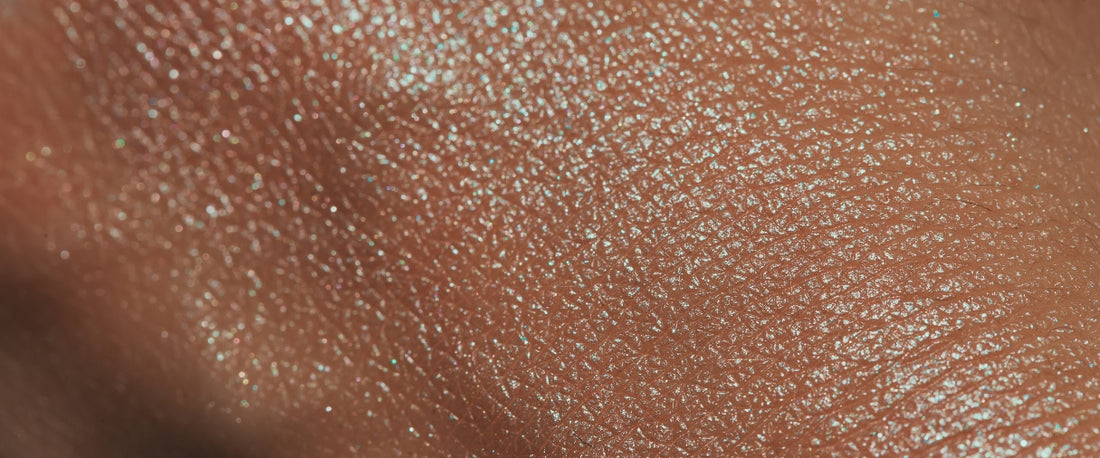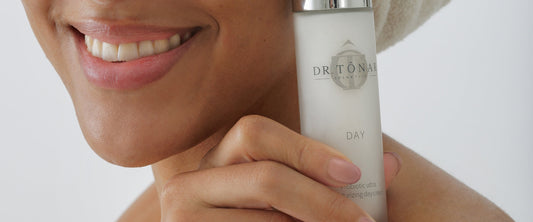There is a lot of talk these days about skin-friendly nutrition for a beautiful glow from within. The right diet has an enormous influence on skin health. Omega-3 fatty acids, antioxidants and zinc have a particularly positive effect on the skin. Read more here about how these three nutrients in food can give the skin a natural glow.
Omega-3 fatty acids

Often touted as essential nutrients for overall health, omega-3 fatty acids play a crucial role in maintaining skin health and promoting a radiant complexion. Found primarily in oily fish and certain plant sources, these polyunsaturated fatty acids provide a variety of benefits to the skin, making them an essential addition to any skincare routine. Omega-3 fatty acids possess powerful anti-inflammatory properties, making them a valuable nutrient in fighting skin inflammation. By reducing inflammation, omega-3 fatty acids help soothe irritated skin, minimize redness and swelling, and promote wound healing. They also play a crucial role in strengthening the skin barrier and its ability to retain moisture and protect the skin from external aggressors. They also strengthen the cell membrane of skin cells, improving the structure and elasticity of the skin.

Primary sources of omega-3 fatty acids include fatty fish such as salmon, mackerel, sardines and herring. Plant sources include flax seeds, chia seeds and walnuts. Additionally, omega-3 supplements may be considered for those who may not be getting enough omega-3 rich foods in their diet.
Antioxidants

Antioxidants have particularly many positive properties for skin health. They neutralize free radicals that are caused by UV radiation and pollution and can damage skin cells. Antioxidants capture free radicals and neutralize them by releasing electrons. This prevents free radicals and oxidative stress from damaging the cell membranes and DNA of skin cells, which can lead to wrinkles, loss of elasticity and pigmentation. UV radiation from the sun is a major source of free radicals that can damage the skin. Antioxidants form an additional layer of protection against UV-related damage and can thus reduce the risk of sunburn, premature skin aging and skin cancer. Antioxidants can promote collagen production and thus maintain the elasticity and structure of the skin. This prevents the formation of wrinkles. Free radicals can also stimulate the production of melanin, the skin's color pigment, which can lead to hyperpigmentation and age spots. Antioxidants can inhibit melanin production, thereby brightening the complexion and promoting an even skin tone.

Red berries, citrus fruits, green leafy vegetables, tomatoes and carrots are among the main sources of antioxidants. Nuts and seeds are also good sources of antioxidants.
zinc

Zinc is an essential trace element that is not only important for the entire body, but especially for the skin. It is known for its anti-inflammatory and wound-healing properties and is important for immune function. It also plays an important role in many skin functions and contributes to a healthy, radiant complexion. Zinc has an antibacterial effect and can inhibit the growth of acne bacteria. The anti-inflammatory properties of zinc can relieve redness and irritation of the skin. This is particularly helpful for inflammatory skin conditions such as acne, atopic dermatitis and rosacea. Zinc also promotes wound healing and supports the regeneration of the skin. This can minimize scarring after pimples or injuries and contribute to a smoother complexion. Zinc also regulates sebum production, which can prevent clogged pores and reduce the appearance of pimples and blackheads. Zinc strengthens the skin's protective barrier and thus protects the skin from harmful environmental influences such as free radicals and UV radiation, thus preventing premature skin aging and the formation of wrinkles.

The main sources of zinc include meat, shellfish, legumes, dairy products and whole grains. Nuts and seeds are also good sources of zinc. It is important to know that although zinc is an important nutrient for the skin, too much zinc intake can lead to skin irritation and other side effects. Therefore, it is important to stick to the recommended daily dose and only take zinc supplements after consulting a doctor.
Pro tip: The combination of a balanced diet and a skin care routine tailored to your skin type ensures a perfect glow on your skin.
Omega-3 fatty acids, antioxidants and zinc are more than just nutrients in our diet - they make the skin glow from within. Their ability to reduce inflammation, improve skin moisture levels, neutralize free radicals and promote wound healing make them essential nutrients for the health and beauty of the skin at any age.





